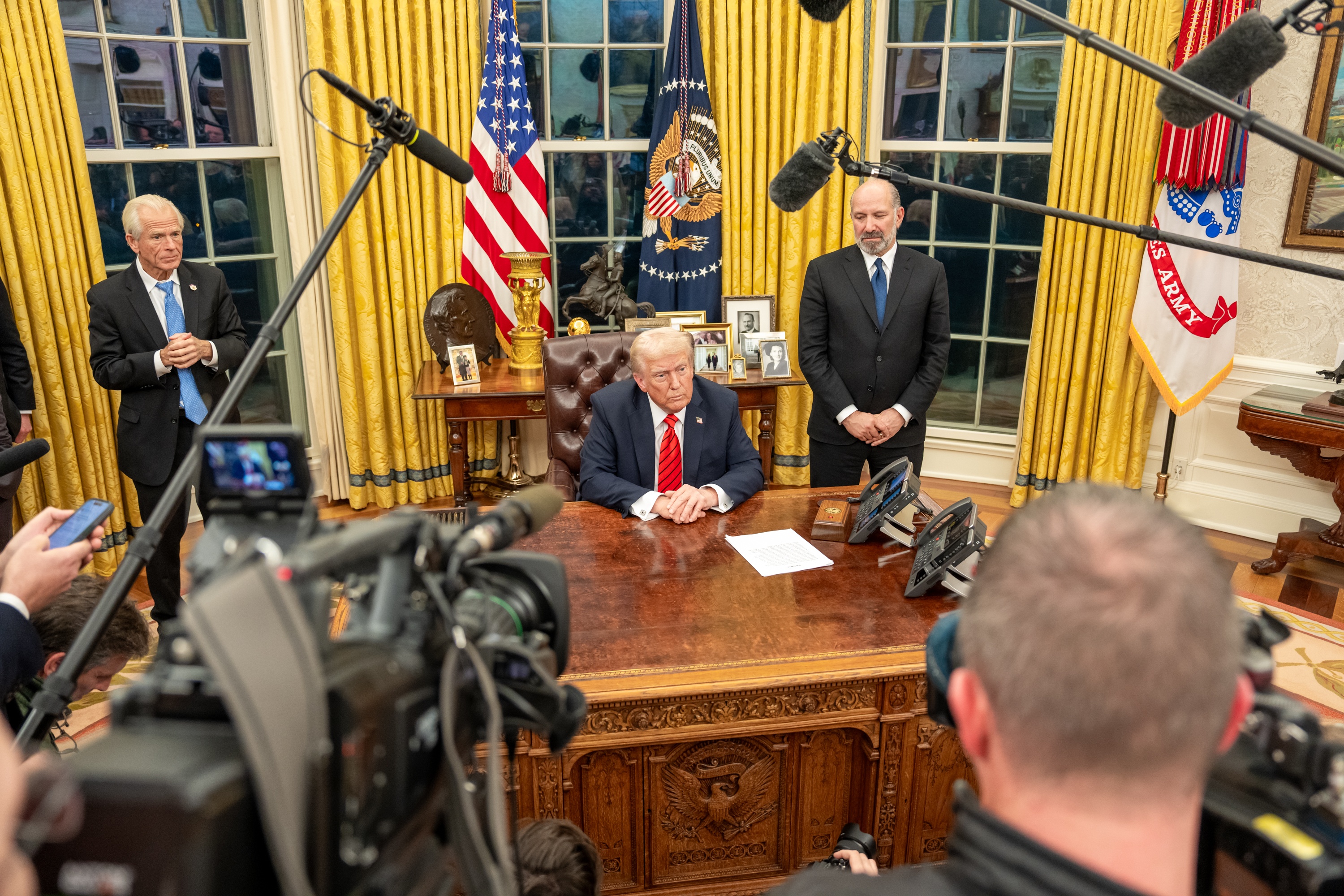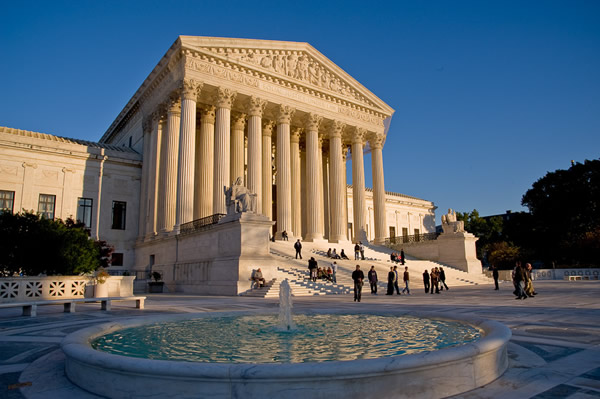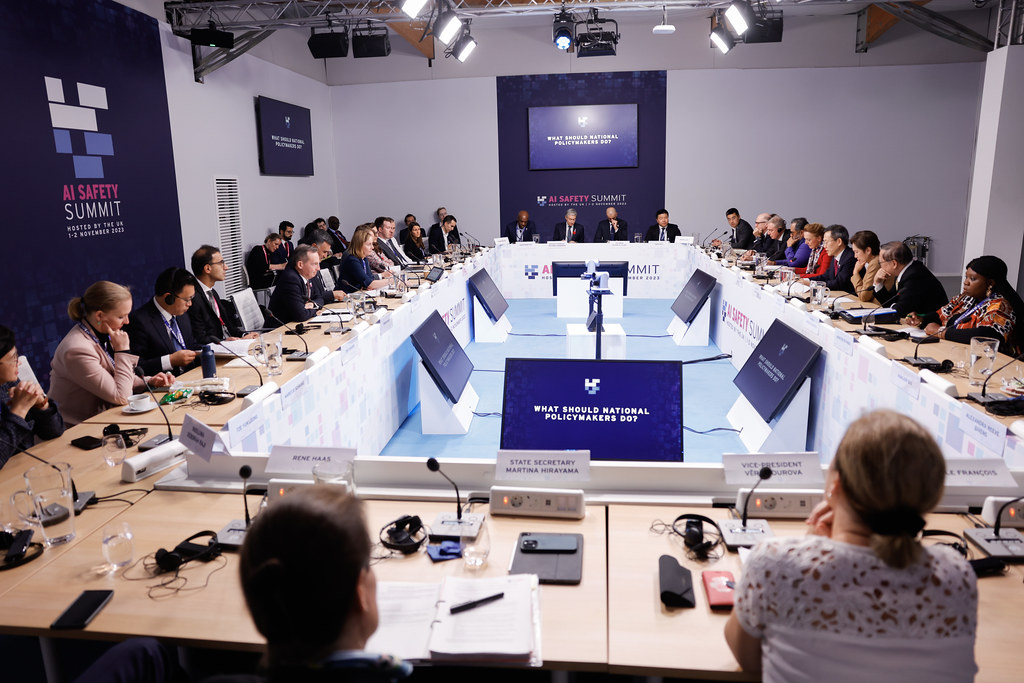How Can the President Obstruct Justice?
Earlier today, Josh Blackman penned on this site a cogent piece arguing that a president cannot commit the crime of obstruction of justice using valid exercises of his Article II powers as president. There is a lot in Blackman’s article with which I agree, and I urge all readers inclined to race to the judgment that President Trump has obstructed justice to read it carefully. But I ultimately come to a different conclusion—at least theoretically.
Published by The Lawfare Institute
in Cooperation With

Earlier today, Josh Blackman penned on this site a cogent piece arguing that a president cannot commit the crime of obstruction of justice using valid exercises of his Article II powers as president. There is a lot in Blackman’s article with which I agree, and I urge all readers inclined to race to the judgment that President Trump has obstructed justice to read it carefully. But I ultimately come to a different conclusion—at least theoretically. Whether the theoretical differences between my approach and Blackman’s have any real-world application, much less application in the context of L’Affaire Russe, I will not venture a guess. But let’s explore the theoretical question of when presidential conduct can and cannot violate the obstruction statutes.
As a preliminary matter, as Blackman describes, it is definitely possible for a President to obstruct justice. This is an easy question of which we can dispose quickly. A president who coaxes a witness to lie, who pays off a witness, who bribes a juror, or who picks up the phone and threatens a federal judge would of course be amenable to criminal prosecution (at least after he leaves office) for obstruction of justice. There would be no plausible defense that he was entitled to do these things because of Article II of the Constitution. This is why both Richard Nixon and Bill Clinton faced plausible criminal jeopardy under the obstruction statutes: In both cases, their obstructive behaviors went well beyond management of the Executive Branch. Similarly, to the extent that Trump has a witness tampering problem (and I’m not saying that he does) as a result of continued contact with Michael Flynn after the latter was fired (Trump reportedly passed him a message to “stay strong”), there is no plausible defense on grounds that the President has some inherent Article II power to manage the Executive Branch.
The hard question, as Blackman rightly notes, is narrower: Whether it’s possible for a president to obstruct justice in the context of performing his constitutionally assigned role, that is, using only otherwise valid exercises of his constitutional powers.
I have two antecedent thoughts before I treat this question:
First, in contrast to Blackman, I do not believe that impeachment depends on the answer to this question. Blackman seems to treat the question of presidential obstruction as a criminal matter as dispositive of the President’s amenability to impeachment for obstructive conduct. This strikes me as wrong. Congress is free to regard as an abuse of power worthy of impeachment any number of valid exercises of presidential authority. Those that obstruct justice strike me as no different.
A few examples should suffice to prove this point dispositively. If President Trump showed up at the State of the Union, announced that his contempt for Congress knew no bounds and proceeded to scream obscenities for an hour in Ancient Greek, he could not plausibly be said to have acted outside of his constitutional authority to give information to Congress from time to time on the state of the union; that authority, after all, does not specify the nature of the communication the President gives, its tone, substance or language. The President’s comments would also presumably be protected by the First Amendment. But Congress would certainly be within its rights to regard such a display as worthy of impeachment and removal, an abuse of power that shows the man who did it unfit for office. Similarly, if Trump, angry at Theresa May for her recent criticism of him over Muslim-hating video retweets, ordered all U.S. nuclear submarines positioned as close to London as they could get while remaining in international waters, no question would arise as to his constitutional authority as Commander-in-Chief to issue such an order. But the House of Representatives would be perfectly entitled to ask whether such a commander should be relieved of his command. Similarly, if the President publicly ordered the FBI to only investigate Jim Comey and Hillary Clinton and Rosie O’Donnell from now on, to devote all resources to these priorities, and to suspend all other matters until these particular fiends were brought to justice, he would certainly be acting within his authority to direct the conduct of the Executive Branch. Yet he should nonetheless face impeachment and removal for his exercise of that authority. Congress might, to be sure, choose to impeach instead on the basis of the apparent due process violation towards those targeted by this action, but I would have no hesitation as a member of Congress in focusing in addition on the misuse of a core presidential power.
Similarly, it’s perfectly possible that a pattern of obstructive conduct with respect to the Russia investigation can offer reasonable grounds for impeachment even if the criminal obstruction statutes themselves cannot reach the President’s conduct. Impeachment depends ultimately on abuse of power, not on criminal law violation, and abuses of power emphatically do include abuses of lawful power.
Second, the question of whether and when the President can obstruct justice is different from the question of whether he can be indicted while in office, and it’s important to keep them separate. For present purposes, let’s assume he cannot be indicted (which I actually believe is the correct reading of the law). This view does not resolve the question of whether he is liable after impeachment and removal (or just after he leaves office) to criminal prosecution for an allegedly obstructive act or pattern of behavior. In other words, it’s important to separate the question of whether the president is temporarily immune because of his current status as president from the question of whether the nature of his position substantively immunizes him for acts for which others could face prosecution under the obstruction statutes.
With these points as overture, let me say that I certainly agree—with Blackman and others—that Article II to some degree limits application of the obstruction statutes to valid presidential actions. The President has the inherent authority to direct the Executive Branch. And to direct sometimes means to hold back, which is to say to obstruct. I don’t doubt that there are many presidential acts that would constitute obstructions of justice if anyone but the President engaged in them but which constitute legitimate exercises of presidential power when the President engages in them.
This should not be democratically troubling. If anyone other than Congress impeded the bringing of terrorism suspects to court for trial, it would arguably constitute an obstruction of justice. When Congress does precisely that by passing a law, we call it a transfer restriction and we don’t even think about obstruction of justice. The nature of constitutional delegations of power is that they entitle the empowered official to do certain things that other people can’t do. I have no doubt that the President is immune from obstruction of justice charges (though not from impeachment) for, say, pardoning Joe Arpaio, though the effect of the pardon was certainly to obstruct the due administration of justice and President Trump issued it with specific intent to do precisely that. I also have no doubt that firing Jim Comey was, in and of itself, not a criminal act but a step that the President had the authority to take.
But the obstruction statutes are a tricky business. By their terms, they generally do not prohibit specific acts alone. They prohibit those acts when taken “corruptly, or by threats or force, or by any threatening letter or communication.” They prohibit those acts when someone engages in them “willfully” and with specific intent to tamper with the justice system. They use words like “corruptly persuade.” The same exact act can be an obstruction of justice or not depending entirely on what the perpetrator of that act intends. Consider the phrase, “That’s a nice house. It would be a shame if something happened to it.” If you’re an insurance salesman, that’s a homeowner’s insurance sales pitch. If you’re a mobster and you’re speaking to a potential witness, that’s a textbook violation of the witness tampering statute, 18 U.S.C. § 1512(a)(2).
Note that you have the First Amendment right to speak those specific words every bit as much as the President has the inherent authority under Article II to manage the Executive Branch. So the fact that you have the right to say those words does not answer the question of whether you have the right to say them with the specific intent of committing a federal crime. A judge has inherent authority to manage her courtroom, but if she maliciously holds a grand juror in contempt specifically to prevent him from voting in a fashion she doesn’t like on an indictment of a mobster who has befriended her, that presumably violates 18 U.S.C. § 1503, which prohibits “corruptly, or by threats or force . . . [impeding] a grand or petit juror . . . in the discharge of his duty.”
To be sure, the President is different, because the President is the Executive Branch, so to some extent, presidential obstruction of justice can involve the tautology of obstructing himself—at least to the extent the Justice Department and the FBI are merely arms of the President. This may be a complete answer to an obstruction question where the obstruction takes place entirely within the Executive Branch. The trouble is that major criminal investigations seldom do take place entirely within the Executive Branch. Criminal investigations take place in a complex interaction between the Justice Department and grand juries, which are instrumentalities of the judiciary, and they end up in court in criminal proceedings. It’s not clear to me why a facially valid action taken in the service of managing the Executive Branch, taken with specific intent to commit a crime in order to influence a judicial proceeding, can never violate statutes that endeavor to protect the judicial function.
To put meat on these bones, let’s consider a few hypotheticals which have in common that they all involve facially valid presidential action to supervise the Executive Branch, but which I submit are cognizable as obstructions of justice:
- The President offers for sale the dismissal of cases to defendants. The Turks want to get rid of the case against Reza Zarrab? Sure, for $15 million. We all agree that this would be bribery, and that the President would be subject to impeachment and later prosecution for it. But now think about the obstruction case that would arise as well. The other participants in this scheme would all presumably be vulnerable to prosecution for obstructing justice, as well as for bribery. After all, the scheme is practically the definition of 18 U.S.C. § 1503’s prohibition of “corruptly, or by threats or force, . . . influenc[ing], obstruct[ing], or imped[ing] . . . the due administration of justice.” Would the (former) President get a pass on this count of the indictment because the dropping of the cases was itself within his power to order?
- The President directs his cabinet to do whatever is necessary to shut down the Mueller investigation. He doesn’t specify the means or order anyone to do anything illegal, but he makes clear that he will issue whatever pardons are necessary to anyone who effectuates his will. The President, in this instance, has done nothing but engage in the lawful function of directing the senior officers of the Executive Branch—and hasn’t even specified a particular action, just a particular outcome. Would we really say that the fact that he has the authority to direct the conduct of the Executive Branch substantively immunizes him from a charge of obstruction? If one of his cabinet officers subsequently takes dramatically illegal action based on his direction and promise of a pardon, does the President have no criminal exposure here?
- Finally, imagine that a federal judge’s daughter works in the Justice Department. And imagine that the President directs Attorney General Sessions to make sure she gets outrageous promotions and that he does so with the specific intent of influencing her mother’s handling of a case he cares about. Imagine, for that matter, that he tells her this explicitly: “I’m taking care of you so your mom will take care of me.” All he has done, of course, is manage the Executive Branch. He is as entitled to promote a young Justice Department lawyer as he is entitled to fire his FBI Director. Would we really say that the obstruction statutes here do not operate?
My bottom line is that at some point, good faith matters. At some point, specific intent matters. That’s what the statutes all say. And I don’t believe the President is entirely outside of their strictures.
What is that point? I think it is defined by the President’s oath of office and the Take Care Clause. That is, as long as the President is operating plausibly within the boundaries of the Take Care Clause, which requires that he “Take Care that the laws be faithfully executed,” and within the parameters of his oath to “faithfully execute” the duties of President, he probably cannot be said to act with the requisite criminal intent to violate the obstruction statutes with an otherwise lawful act of managing the Executive Branch. But I do think it’s at least theoretically possible for the President to issue orders to the Executive Branch that are so outside of the bounds of those clauses that a reasonable jury could lawfully regard him as acting with the requisite mens rea for conviction under one or more of the statutes.
That understanding puts a high evidentiary burden on a prosecutor. But that burden is quite different from saying that the president is immune as a matter of law. The key point is that the question of presidential obstruction is ultimately an evidence question, not one on which a prosecution is precluded as a matter of separation of powers.





